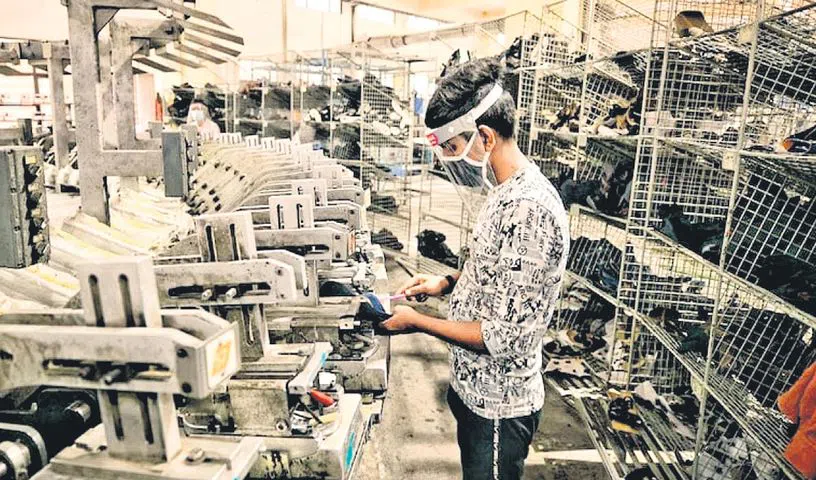Recently, my employee called me desperately. She said the corporate hospital where her son was admitted is charging a huge premium for medication and is willing to offer a discount only if they paid in cash and went outside health insurance. Her husband, a manager in a large IT company, was entitled to the company insurance and the hospital was enlisted for cashless treatment. I intervened and my experience with the hospital billing system was very painful.
Before I narrate this painful experience, let me clarify that this is not a grievance against a single hospital or the entire corporate hospitals. All of us acknowledge the yeoman service rendered by corporate hospitals in two ways. First, they compensate for the poor public healthcare system in India. Second, they bring in latest technology and equipment and take big risks. Most of us cannot imagine healthcare in India without corporate hospitals. The point that treatment in India is far cheaper than the West is not in debate. The fact that the billing is not transparent is the debate here.
There is a story about Vittal Mallya, the Bangalore based-tycoon, who went to buy bananas every day and often bargained for a few rupees. This was because he wanted to pay a fair price and not be fleeced as he was rich.
The Case
The patient, a 15-year-old child, was diagnosed with Gullian Barre Syndrome. The treatment was simple — intravenous Immunoglobin therapy — 30 mg of IvIg per day for five days in the hospital. Originally this hospital quoted Rs 6 lakh package and claimed that the high cost was because of the huge drug cost, but it was willing to reduce it to Rs 3.6 lakh if the family paid for the drug in cash (outside insurance) at the in-house pharmacy. However, the pharma company offered a special discount and even got permission to give the drug free, subject to one condition — the hospital should allow the company to supply the drug to the hospital pharmacy directly, as a drug replacement
Painful Experience
The CEO of the hospital offered full help but when I met the COO the story changed completely.
• The hospital would not administer the drug unless bought from their pharmacy due to fears of quality
• Hospital pharmacy would charge the discounted rate only if paid in cash – outside the insurance entitlement
• Pharmacy would not accept the drug offered at discount or free by the pharma company
There were two packs — 5 mg and 10 mg at MRP of Rs 17,995 and Rs 23,648 per vial, respectively. The 10 mg vial was cheaper by 34% compared with two 5 mg packs. Further, one gets a 20% discount if you bought online. The hospital pharmacy was offering only the higher-priced smaller pack, saying the doctor had prescribed it. I met the doctor, and he was surprised. The dosage prescribed was ideal for the bigger pack. This is a classic case of misrepresentation. The pharmacy was aware of the lower MRP for the larger pack but acted as if they were doing a big favour by giving the lower pack at its lower MRP rate and asking for cash in exchange. They refused to supply the drug with the discount to the in-patient pharmacy saying the in-patient pharmacy would charge full MRP, which can be claimed from insurance
The above is prevalent across multiple hospitals. Besides, this is not the fault of the billing or insurance clerks. It seems that diagnostics and pharmacy are the most profitable units in a hospital, and this happens by design.
Unanswered Questions
• Why did the hospital offer the Rs 6-lakh package in the first place based on the smaller pack? Why did the pharmacy not offer the larger pack when it is hugely beneficial to the customer?
• Why did the hospital not accept drug delivery directly from the pharma company, with zero risk of quality?
• Why did the hospital push for cash payment outside insurance when all of us buy insurance, only to use it? It is true that hospitals struggle with the Third Party Administrators of insurance companies in implementing the cashless scheme. But instead of taking up this issue with the insurance companies, why should they pass on the problem to the patient and try to push the patient away from insurance?
• Why should the hospital deprive the in-patients of drug discounts which is offered to out-patients? Shouldn’t the in-patient get a better deal than the out-patient? Today every patient is aware of the competitive pricing thanks to the online marketplace. Hospitals are forced to offer discounts to compete on these when it comes to outpatient services. But when it comes to in-patients, why should they charge them MRP?
Hefty Bills
The reality is that corporate hospitals are very expensive, and we pay their five-star prices assuming that they will be on our side, to minimise at least the non-hospital cost and help us claim the insurance. But they are doing the opposite. Hospitals spend a lot of money on all kinds of counselling, including nutrition and diet, grief and psychological counselling. But they miss the crucial piece — billing counselling. If you conduct a poll among patients exiting any corporate hospital about the billing experience, most will say they were overcharged. This perception comes from the single fact that no one cares to counsel the patient or his attendant about every item of billing and counsel more about how the hospital is trying to minimise the billing and how it is bending backwards to assist in insurance claims.
Every patient thinks about surviving the disease when s/he comes in. But when s/he goes out, s/he thinks only about how s/he will survive after the hefty billing. Why can’t hospitals appoint genuine billing counsellors to transform the billing experience?
Corporations spend crores on medical insurance to help employees get access to hospital treatments seamlessly. It time corporates established a health desk (like a travel desk) to manage hospital and the insurance system for their employees. It is also time patients created an online platform to share their experiences and rate hospitals on transparent billing practices.


